Last update:
Parkinson's & Movement disorders news
Alzheimer's disease & dementia
In Parkinson's, dementia may occur less often, or later, than previously thought
There's some good news for people with Parkinson's disease: The risk of developing dementia may be lower than previously thought, or dementia may occur later in the course of the disease than previously reported, according ...
12 hours ago
0
2
Neuroscience
New visual technique could advance early detection of neurodegenerative diseases
Researchers at the University of Minnesota have developed a new visual diagnostic technique that can be used to advance early detection of neurodegenerative diseases like Parkinson's disease and similar diseases that affect ...
Aug 6, 2024
0
30
Answer to preventing Parkinson's disease may lie in seaweed antioxidants
Parkinson's disease is a neurodegenerative disease caused by the loss of neurons that produce dopamine, a neurotransmitter involved in motor control and cognitive function. As the global population ages, the number of Parkinson's ...
Aug 5, 2024
0
1
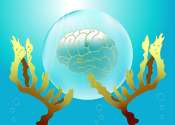
Fecal microbiota transplant no aid for Parkinson's disease
Fecal microbiota transplantation (FMT) is safe but does not offer clinically meaningful improvements for Parkinson's disease (PD), according to a study published online July 29 in JAMA Neurology.
Aug 3, 2024
0
2
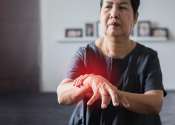
Blood proteins may help to track the pathological progression of Lewy body disease
Early detection of Alzheimer's disease-related changes in Parkinson's disease and dementia with Lewy bodies could be made possible by monitoring the amyloid-β (Aβ) and phosphorylated tau (p-tau) proteins. Researchers at ...
Jul 31, 2024
0
29
Brain cell grafts in monkeys jump-start human trial for new Parkinson's treatment
People with Parkinson's disease are receiving a new treatment in a clinical trial started after University of Wisconsin–Madison scientists demonstrated the safety and feasibility of the therapeutic delivery method in a ...
Jul 29, 2024
0
61
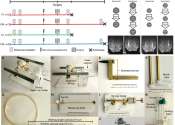
Advanced 'Parkinson's in a dish' model accelerates brain disease research
Researchers at Brigham and Women's Hospital, a founding member of the Mass General Brigham health care system, have developed a model that rapidly converts stem cells to brain cells with protein structures characteristic ...
Jul 29, 2024
0
19

Research shows genetic variants are more common in people with Parkinson's disease than previously thought
Investigators in the Parkinson's Foundation-backed PD GENEration study—which reached its goal of 15,000 participants ahead of schedule this spring—found that 13% of participants have a genetic form of Parkinson's disease ...
Jul 29, 2024
0
12

Antisense oligonucleotide treatment shows promise in treating Parkinson's disease progression
Parkinson's disease (PD), as well as many other neurodegenerative disorders, has shown a link between the abnormal aggregation of a protein called α-synuclein (aSyn) and neuronal death. These aggregates, known as Lewy bodies ...
Jul 25, 2024
0
7
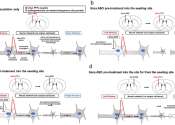
Fruit fly study identifies gene that may reverse Parkinson's disease
Researchers at Simon Fraser University, in collaboration with a group from Baylor College of Medicine in Texas, have identified a gene that appears to reverse Parkinson's disease symptoms in fruit flies.
Jul 24, 2024
0
57
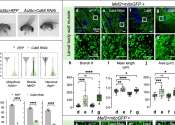
Body composition can affect risk of dementia or Parkinson's, research suggests
People with high levels of body fat stored in their belly or arms may be more likely to develop diseases like Alzheimer's and Parkinson's than people with low levels of fat in these areas, according to a study published in ...
Jul 24, 2024
0
37

What your gait says about your health
Walking requires a huge number of signals between your brain and the muscles in your arms, chest, back, abdomen, pelvis and legs. Something that looks relatively straightforward is in fact incredibly complex. And the pace ...
Jul 24, 2024
0
9

Botox could make walking easier in children with cerebral palsy
A randomized clinical trial published in Developmental Medicine & Child Neurology has assessed whether injections of botulinumtoxin-A in calf muscles benefit children with cerebral palsy.
Jul 24, 2024
0
0
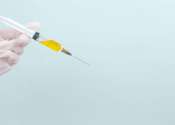
Researchers find changes in pathway strength for Parkinson's disease models
An interdisciplinary team of scientists has found changes in the strength of neural pathways in an area of the brain involved in reward processing and movement coordination when someone has Parkinson's disease.
Jul 24, 2024
0
0
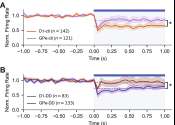
New video test for Parkinson's uses AI to track how the disease is progressing
A video-processing technique developed at the University of Florida that uses artificial intelligence will help neurologists better track the progression of Parkinson's disease in patients, ultimately enhancing their care ...
Jul 23, 2024
0
9
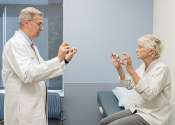
Preclinical model offers new insights into Parkinson's disease process
A new preclinical model offers a unique platform for studying the Parkinson's disease process and suggests a relatively easy method for detecting the disease in people, according to a new study led by Weill Cornell Medicine ...
Jul 23, 2024
0
42
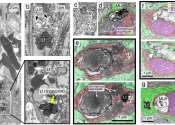
Protein discovery linked to Parkinson's disease opens future research areas
Parkinson's disease is the world's fastest growing neurological condition. Currently there are no drugs or therapies that slow or stop the progression of the disease.
Jul 23, 2024
0
21
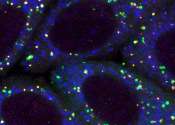
Blood test to detect alpha-synuclein protein could revolutionize Parkinson's disease diagnostics
To date, Parkinson's disease (PD) is diagnosed clinically and rather late in the course of the disease. There is an urgent need to find an objective, quantifiable biomarker for the diagnosis of this highly prevalent movement ...
Jul 22, 2024
0
0
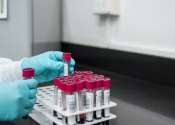
Gut protein may protect brain cells in Parkinson's disease
Nearly 10 million people worldwide suffer from Parkinson's disease (PD), a condition causing muscle rigidity and tremors due to the loss of the chemical dopamine in the brain. One cause of PD is exposure to toxins. In a recent ...
Jul 17, 2024
0
19
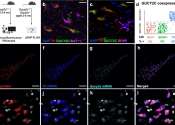
Machine learning helps define new subtypes of Parkinson's disease
Researchers at Weill Cornell Medicine have used machine learning to define three subtypes of Parkinson's disease based on the pace at which the disease progresses. In addition to having the potential to become an important ...
Jul 16, 2024
0
52
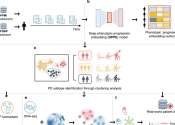
Study reveals link between playing contact sports and parkinsonism in individuals with chronic traumatic encephalopathy
The largest study of CTE to date has found a new link between playing contact sports, chronic traumatic encephalopathy (CTE), and the development of a movement disorder known as parkinsonism.
Jul 15, 2024
0
54

Protein droplets likely don't cause Parkinson's, study suggests
Liquid-liquid phase separation is not a precursor to formation of amyloid fibrils, a pathological hallmark of Parkinson's disease, shows a recent study. Rather, the formation of protein into liquid droplets may help to dissolve ...
Jul 15, 2024
0
12
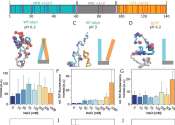
Researchers identify new mutation in gene linked to amyotrophic lateral sclerosis
Researchers have identified a new mutation in the ARPP21 gene that could be the cause of amyotrophic lateral sclerosis (ALS), a devastating neurodegenerative disease. The researchers are from the Neuromuscular Diseases Group ...
Jul 12, 2024
0
48
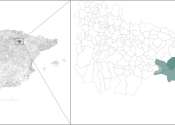
Molecular insights into cognitive impairment: New research uncovers how Parkinson's affects the brain
Parkinson's is associated with a higher risk of cognitive impairment and dementia that can severely impact quality of life. Cognitive symptoms include deficits in attention and mental flexibility, among others, and can pre-date ...
Jul 11, 2024
0
0
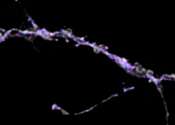
Major trial looks at most effective speech therapy for people with Parkinson's disease
A major clinical trial, led by researchers at the University of Nottingham, has shown the Lee Silverman Voice Treatment (LSVT LOUD) is more effective than the current speech and language therapy provided by the NHS, when ...
Jul 10, 2024
0
19




















